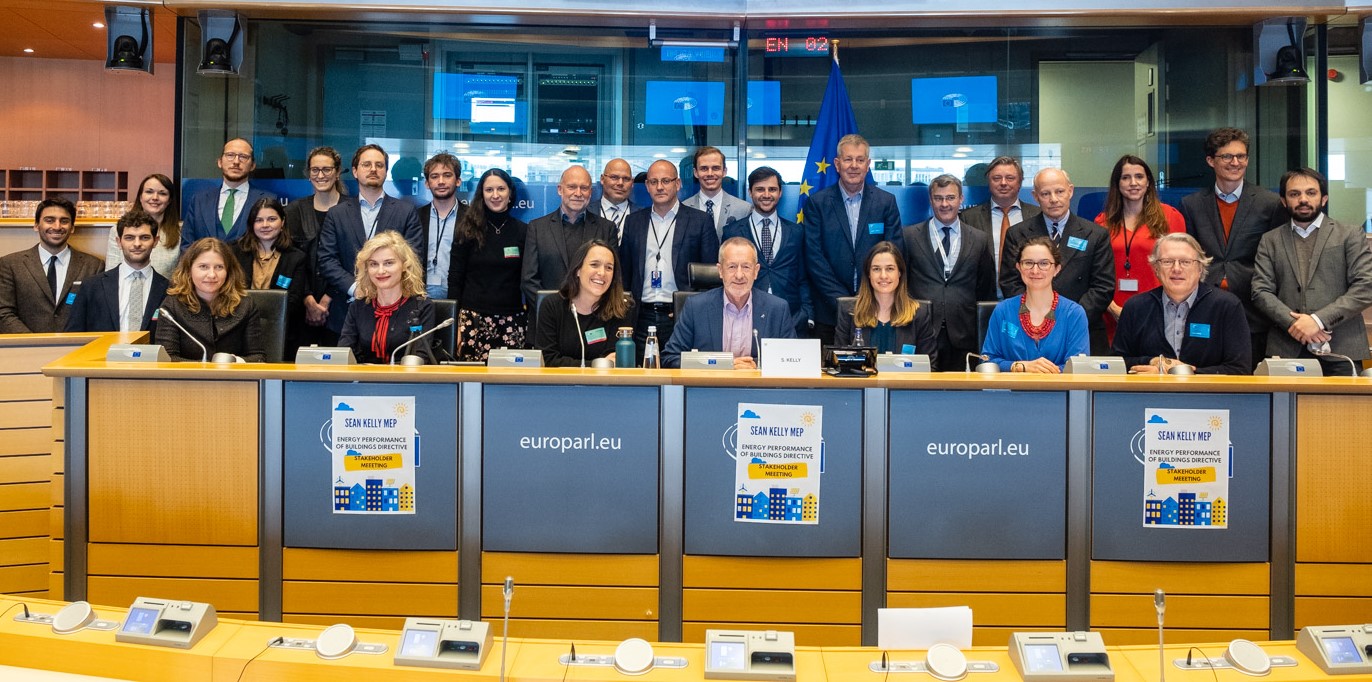Ireland South MEP Seán Kelly recently hosted the first stakeholder discussion in the European Parliament on the Energy Performance of Buildings Directive (EPBD), ahead of its upcoming revision. The EPBD is a key piece of legislation in the European Green Deal, and its revision will have wide-ranging implications for the EU Renovation Wave, and the EU’s climate goals, in the coming years.
As EPP Group lead negotiator on the European Parliament’s EPBD revision, Kelly has said that dialogue with key industry stakeholders will play a decisive role in the formation of the EPP’s position on the revision.
“I was delighted to welcome a wide range of stakeholders to the European Parliament yesterday for a lively exchange of views on the crucially important EPBD recast,” Kelly stated.
“The current revision is likely to have a major impact on the realisation of our climate goals as we work to decarbonise Europe’s building stock. Not only that, it will directly affect almost every citizen and business in the EU”, Kelly he added.
“The European Union has set a number of ambitious climate targets in recent years, including a commitment to achieve climate neutrality by 2050. These goals are achievable, but only if we take the necessary measures now to ensure that our building stock becomes smarter, greener and more efficient. There will have to be major efforts by governments to help people afford this, but banks must also step up and provide favourable financing for energy efficiency and renovations purposes.”
“Between 85% and 95% of the current building stock will still be in use by 2050. Retrofitting is an essential component of the move towards a greener building stock. The Renovation Wave will help to create job opportunities for young people across Europe, as well as contributing to the achievement of our climate goals,” Kelly noted.
“Soaring energy costs in Europe in recent months have also underlined the practical need to reduce energy consumption and improve the energy efficiency of our homes.”
“That is why it is so crucial to engage a wide range of stakeholders with an interest in the EPBD at this early stage of the revision process,” the MEP stated.
“We need to understand how the European Union can incentivise and encourage retrofitting. Those who are active in the industry are, of course, best placed to offer insights into the most practical solutions in this regard.”
“This discussion marked the first step of what I hope will be an ongoing and fruitful engagement with stakeholders as we prepare for the publication of the draft report on the EPBD revision in June,” Kelly concluded.

